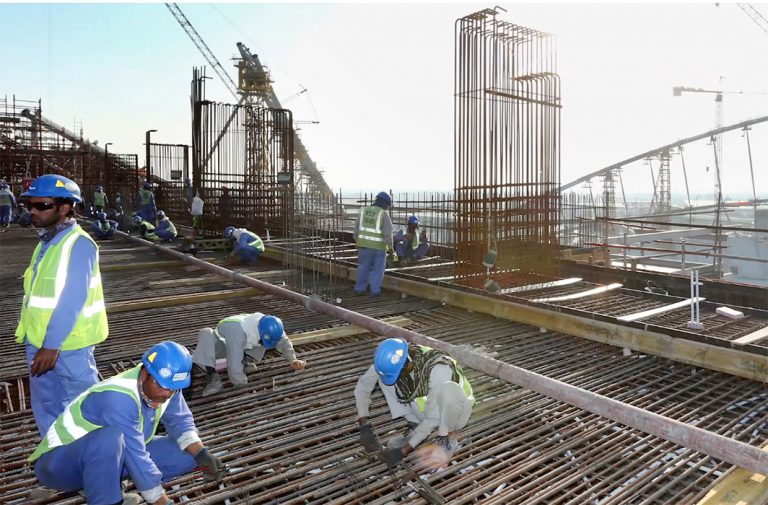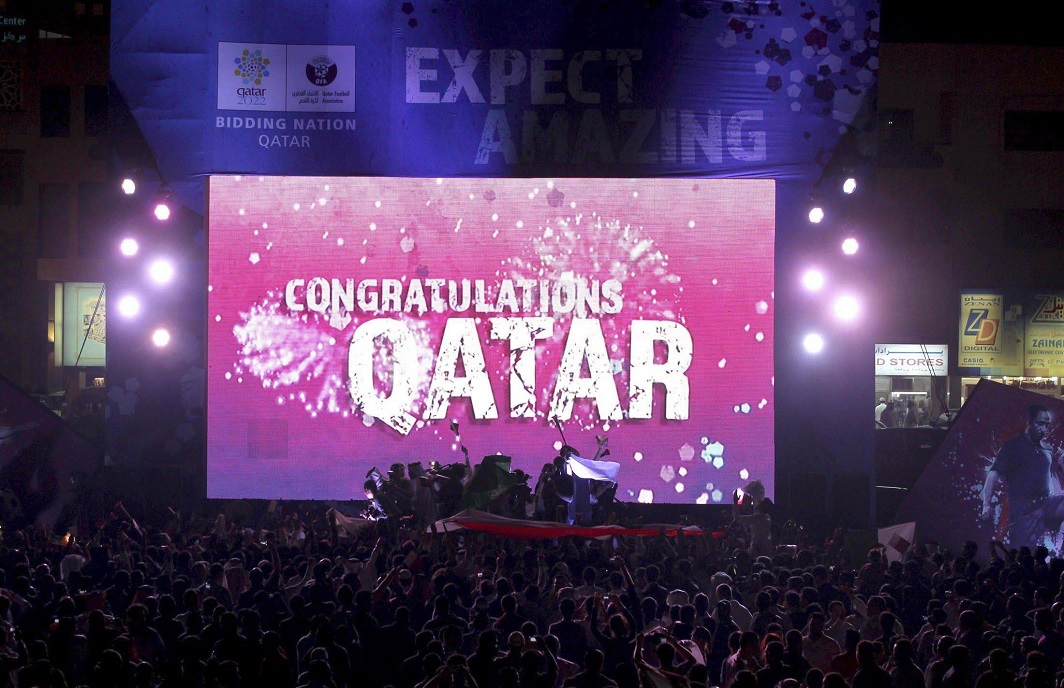
The hosting of FIFA World Cup 2022 by Qatar is witnessing a bumpy ride with FIFA allegedly not pressurising the Qatar government to ensure proper working conditions for migrant labourers
By Sujit Bhar
FIFA and Qatar developed a cosy relationship over the allotment of the FIFA World Cup 2022 to that country. World football’s governing body has been pilloried in the media and by several human rights organisations and sporting unions for not paying heed to the needs of the sport and also to human rights.
The issue of human rights had gone to court and the court in Switzerland has recently rejected that plea by several trade unions and one Bangladeshi national who had claimed damages.
What is the situation, really, in Qatar today?
You can travel pretty much across Doha, the capital of Qatar, even if you have little or no knowledge of English. If you know Hindi, or Bengali and/or any of India’s southern languages, that would be enough for you to converse in taxis, buses, many restaurants and even in some souks (local markets) and malls.
This shows the extent to which the oil rich Qataris, with the richest per capita income in the world, depend on imported labour. India’s Ministry of Development Planning and Statistics (MDPS) had revealed early last year that nearly 58 per cent of Qatar’s overall 2.4 million “population” live in “labour camps”, which means that is the overall ratio of locals versus migrants.
Since then the Qatari population has grown by another 0.1 million, and the weirdest part of this is that 1.34 million among them are male, according to a report. Immigrant labour is predominantly male in Qatar.
The development growth rate has fallen overall, with the fall in oil prices, but what has been appalling so far has been the work conditions (as well as the living conditions) of the migrant labourers.

In 2006, when Qatar hosted the Asian Games, such labour conditions suddenly came into focus through the world media. And it wasn’t a pretty sight. This correspondent, in Doha, was informed by the then Indian ambassador to Qatar, Dr George Joseph, how the Indian embassy had to feed 275 jobless, starving Indian labourers from Bihar and Uttar Pradesh for nearly two months.
They were jobless not because they were at fault. They were employed by a Saudi construction company Thinet, Dr Joseph had told this correspondent. When the company failed to deliver on time, their contract was rescinded by the Qatari government. What was the result? Dr Joseph had said: “As a result the company shut its Qatar operations and the workers, mostly unskilled and semi-skilled—who arrived here through different recruiting agencies—were left out in the cold.”
Not only that, their passports and other documents had stayed with Thinet, which prevented them to even return home.
The ambassador also made it clear that this wasn’t an isolated incident. Such things keep on happening. This was high profile simply because of the number of workers involved.
India’s Ministry of Development Planning and Statistics (MDPS) had revealed early last year that nearly 58 per cent of Qatar’s overall 2.4 million “population” live in “labour camps”, which means that is the overall ratio of locals versus migrants.
The situation has not improved since. When the country claimed the rights to the 2022 World Cup, it had also to be in the focus of the world media again. What was found was that the appalling conditions remain. In the extreme heat of the country, one would have expected work stoppages through the worst times. That did not happen. Incidentally, the international Labour Organisation has not been able to develop any proper guideline on what would constitute a breach of “ambient” temperature for work to stop.
The labour unions – initiated by Dutch trade union FNV, the Bangladeshi Free Trade Union Congress, the Bangladesh Building and Wood Workers Federation and Bangladeshi national Nadim Shariful Alam – went to the Commercial Court of Zurich. They had a long list of complaints, starting from the “kafala” or sponsorship form of enrolment, which makes them virtually paid bonded labourers. Their passports are taken away by the sponsor and they have no right to even give up their jobs and go back home.
The lawsuit, in this backdrop, was critical. The suit said that FIFA, world football’s governing body, had failed to pressure Qatar into providing fair treatment, as per international norms, to migrant labourers in the country’s infrastructure projects. This suit has now been rejected by the court and FIFA and Qatar are free to tom-tom their “success” stories within the purview of international law.
India does have a labour deal with Qatar, which is supposed to ensure the proper treatment of the country’s migrant population there, but this correspondent’s experience in Doha tells another story. With the case being filed, Qatar agreed to end the sponsorship system and gave back the right of resigning from a job to the labourers. The working conditions, however, have not improved, claim international observers.
The lawsuit, in this backdrop, was critical. The suit said that FIFA, world football’s governing body, had failed to pressure Qatar into providing fair treatment, as per international norms, to migrant labourers in the country’s infrastructure projects.
This suit has now been rejected by the court and FIFA and Qatar are free to tom-tom their “success” stories within the purview of international law.
FIFA’s reaction was in officialese. It says, FIFA “takes the issue of working conditions and human rights in connection with the 2022 FIFA World Cup in Qatar very seriously. FIFA monitors the situation very closely and, as recently stated by president (Gianni) Infantino, will continue to urge the Qatari authorities to ensure safe and decent working conditions for construction workers.”
As it seems, FIFA, beset with huge scams not long back, hardly takes into consideration the cries for justice of the workers, while benefitting hugely from the $100 billon development programmes that the Qatari government has undertaken for the World Cup.
Human rights, in the process, become the sacrificial goat.
Lead picture: Migrant labourers at a construction site in Qatar. Photo: youtube

